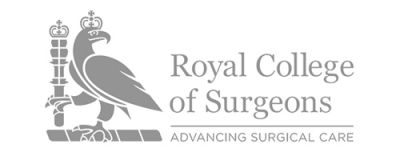REVISION HIP SURGERY
Total Hip Replacement (THR) is a very successful treatment for end-stage degeneration of the hip joint; over 55,000 THRs are performed in the UK each year.
Despite technological advances and our increased understanding of hip replacement surgery, between 5-10% of hip replacements will fail and require revision within 10 years.
CAUSES OF THR FAILURE
The most common cause of hip replacement failure is aseptic loosening due to implant wear, although other factors such as infection, trauma and recurrent dislocation can all result in the need for revision surgery.
REVISION HIP REPLACEMENT SURGERY
Revision hip replacement surgery involves an inpatient stay of 7-10 days. The surgery is complicated, technically demanding and whilst the risks are the same as for primary THR, the rate of complication is much higher. It should be undertaken by surgeons who have an interest in and are specialised in revision hip surgery.
Revision hip replacements are usually performed under a combined (spinal and general) anaesthetic. The old hip replacement is removed with great care in order to protect the surrounding bone. If the original implant was cemented, the cement is generally removed as well. Often there has been significant bone loss as a result of aseptic loosening; a bone graft or additional prosthetic implants may be necessary to allow the revision hip replacement to be properly aligned, orientated and stable.
At the end of the operation a drain is usually inserted into the hip joint to draw off excess blood. A dressing is applied to the wound. Foot pumps, elastic stockings and occasionally an injection to thin the blood are used to lower the risk of blood clots forming in the legs.
No two revisions are the same; possible difficulties encountered are bone loss, instability causing dislocation, infection, fracture and stiffness. Highly specialised implants may be necessary and the results are not as good as for standard primary hip replacement. However, the majority of patients are very satisfied with the results of revision surgery and obtain very good relief of pain and return to function.
POSTOPERATIVE RECOVERY AND REHABILITATION
The postoperative recovery from revision hip surgery is similar to that of primary hip replacement. Occasionally a period of restricted weight bearing with the aid of crutches (usually 6-12 weeks) may be necessary. Physiotherapy is essential to assist patients in mobilising after the operation.
Discussion with Mr Paliobeis is important to answer any questions that you may have. For information about any additional conditions not featured within the site, please contact us for more information.







